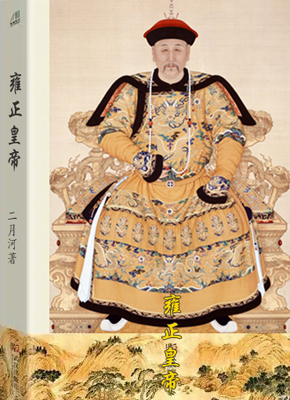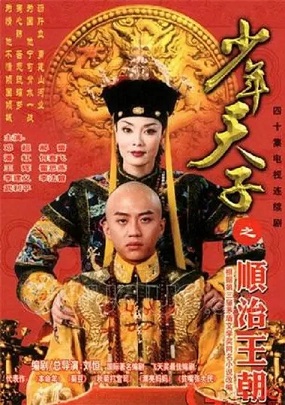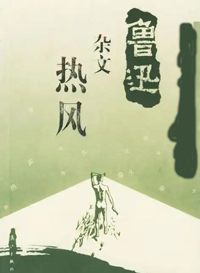AFEW days later, on a Sunday afternoon, Quentin went out for a horseback ride. Before turning toward the mountain, he drew rein1 in the Paseo de la Victoria to watch the people as they went by.
His reputation as a gambler, a dare-devil, and a rude and powerful man, made it possible for him to have his little successes with the ladies, and more than one of them looked at him with the long, staring, and penetrating2 glance of a woman not altogether understood by her husband.
As was customary on fiesta days, the carriages were driven to and fro along the Paseo, and among them rode several horsemen on spirited mounts. In one of his turns, Quentin saw Rafaela and Remedios alone in a carriage. Neither of the two girls noticed his presence, and in order that this should not happen again, Quentin placed himself in such a position that they would have to see him as they came back.
Remedios was the first to recognize him, and she told her sister. Quentin bowed to them very ceremoniously. When they reached the extreme end of the drive, Rafaela must have told her coachman to leave the Paseo. Remedios looked back several times. Quentin rode up to the carriage and entered into conversation with the two sisters. Rafaela was pale and had dark rings under her[208] eyes; she was in the last month of pregnancy3; her eyes were sunken and her ears transparent4.
Remedios was prettier than ever; she was just reaching that intermediate stage when the child becomes the woman.
“Are you two girls well?” Quentin asked them with real interest.
“I am well,” answered Rafaela a trifle weakly. “Just waiting from day to day ... and you can see for yourself that Remedios is prettier and healthier than ever.”
Remedios burst into one of her silent laughs.
“Yes,” replied Quentin, “one can see that the country is good for Remedios.”
“Don’t you believe it!” exclaimed the child. “I would rather live in our house on the Calle del Sol.”
“They say you have become a terrible person,” said Rafaela. “I believe you write for the papers, ... that you keep bad company....”
“Nothing to it—just gossip.”
“And you don’t go to the house any more, either. You have deserted5 poor grandfather.”
“That’s true. I’m always thinking about going, but I never do.”
“Well, he asks after you all the time. The poor dear is very ill, and so lonely.... Since we have been in town, we have been to see him every day.”
“Well, I’ll go, too, don’t you worry.”
“Go tomorrow,” said Remedios.
“Very well, tomorrow it is. But did you two leave the Paseo on my account?”
“No,” replied Rafaela, “I don’t like to drive in that line for very long at a time. It makes my head swim. We are on our way home, now. Adiós, Quentin.[209]”
“Adiós!”
Quentin took the mountain road, and trotted6 his horse as far as the Brillante lunch-room.
The encounter had given rise to a mixture of sadness and irony7 within him, which seemed as distressing8 as it did grotesque9 to him.
“Is there anything of special significance about it?” he asked himself.
No, there was nothing of special significance about it. It was the logical thing. She had married; her husband was young; she was going to have a child. It was the natural course of events; and yet, Quentin wondered at her.
We often see strange birds flying in the heavens. They are like men’s illusions. Sometimes these birds fall, wounded by some hunter, and when one sees them upon the ground with their sad eyes, their white feathers,—they are a surprise to whomsoever contemplates10 them.... It is because man idealizes all distant objects.
Quentin, dominated by his half-dolorous, half-grotesque impressions, returned slowly to the town.
When he reached the Paseo de la Victoria, night had already fallen. The line of carriages was still filing past. The mountain was wrapped in a mist; the sun was sinking over the distant meadows, its great, red disk hiding itself behind the yellow fields; a bluish hill surmounted11 by a castle stood out in silhouette12 against the rosy-tinted horizon.
Few carriages were passing now; above the old wall and gateway13 of Almodóvar, the yellowish tower of the cathedral showed against the azure14 sky, which was now beginning to be decorated with stars.[210]
All of the carriages left the Victoria to drive up and down the Paseo del Gran Capitán.
Quentin entered a café.
“I must get out of this city,” he thought. “I ought to go to London.”
Then he remembered the frequent rain, the wooden coachmen in their cabs, the blue mist in the fields near Windsor, and the ships that glided15 down the Thames in the fog.
He left the café. The carriages continued to pass up and down El Gran Capitán, enveloped16 in an atmosphere of dust.
Quentin went home. María Lucena was getting ready to go to the theatre.
“What’s the matter with you?” she said.
“Nothing.”
Quentin stretched out upon a sofa and spent hour after hour recalling the fog, the dampness, and the cool atmosphere of England, until he fell asleep.







